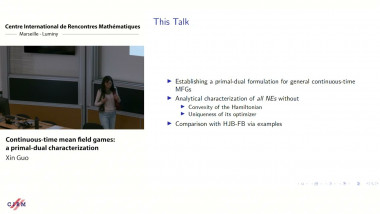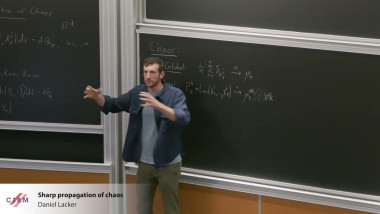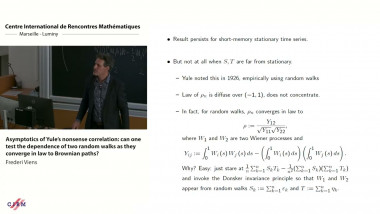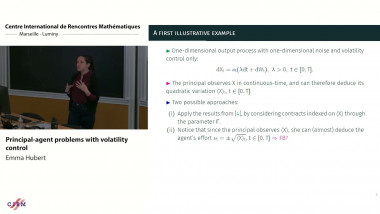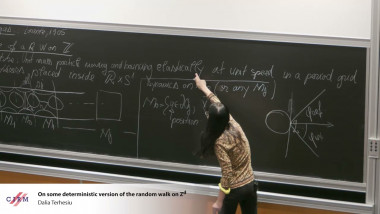Sharp quantitative propagation of chaos
The propagation of chaos phenomenon states roughly that a large system of weakly interacting particles will remain approximately independent for all times if initialized as such. This can be quantified in terms of the distance between low-dimensional marginal distributions and suitably chosen product measures. This talk will discuss some recent sharp quantitative results of this nature, both for classical mean field diffusions and for more recently studied non-exchangeable models. These results are driven by a new "local" relative entropy method, in which low-dimensional marginals are estimated iteratively by adding one coordinate at a time, leading to surprising improvements on prior results obtained by "global" arguments such as subadditivity inequalities. In the non-exchangeable setting, we exploit a surprising connection with first-passage percolation.












